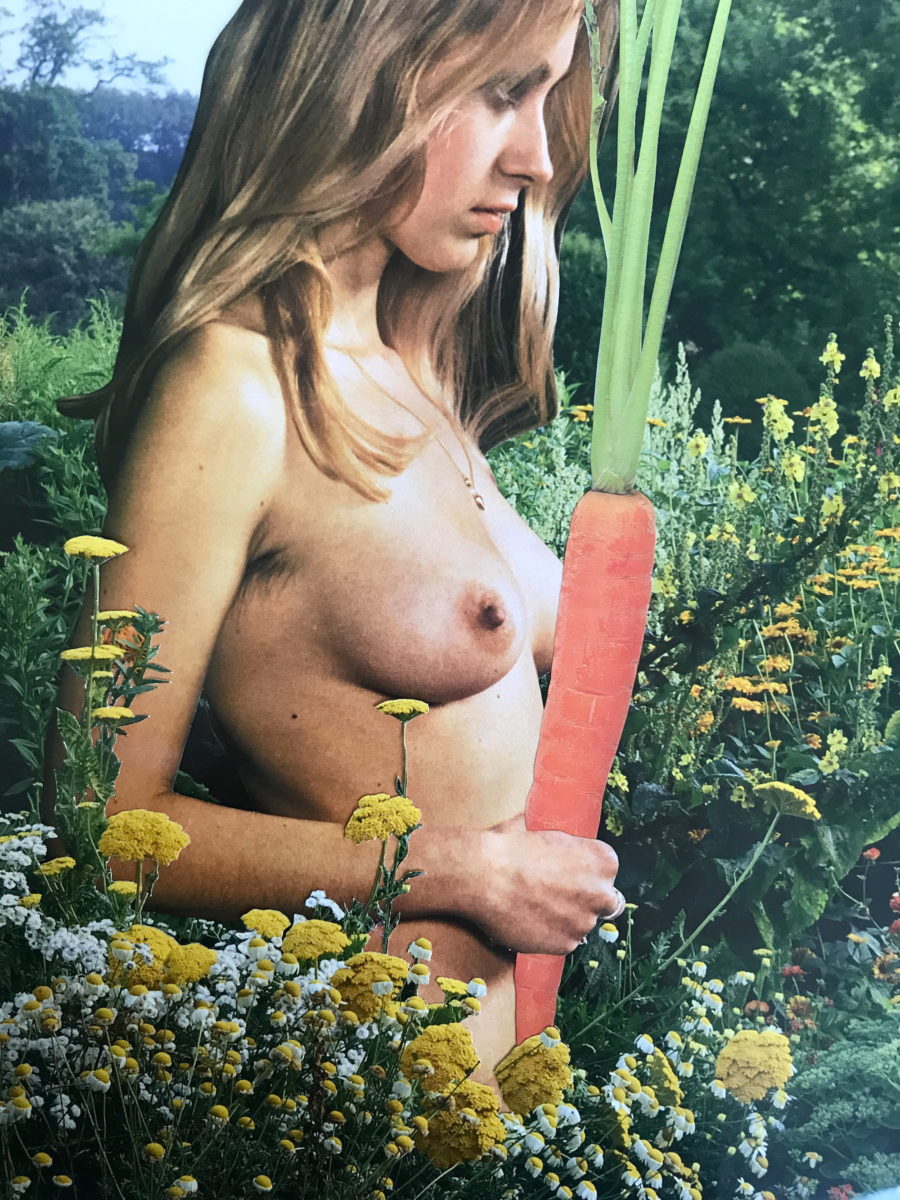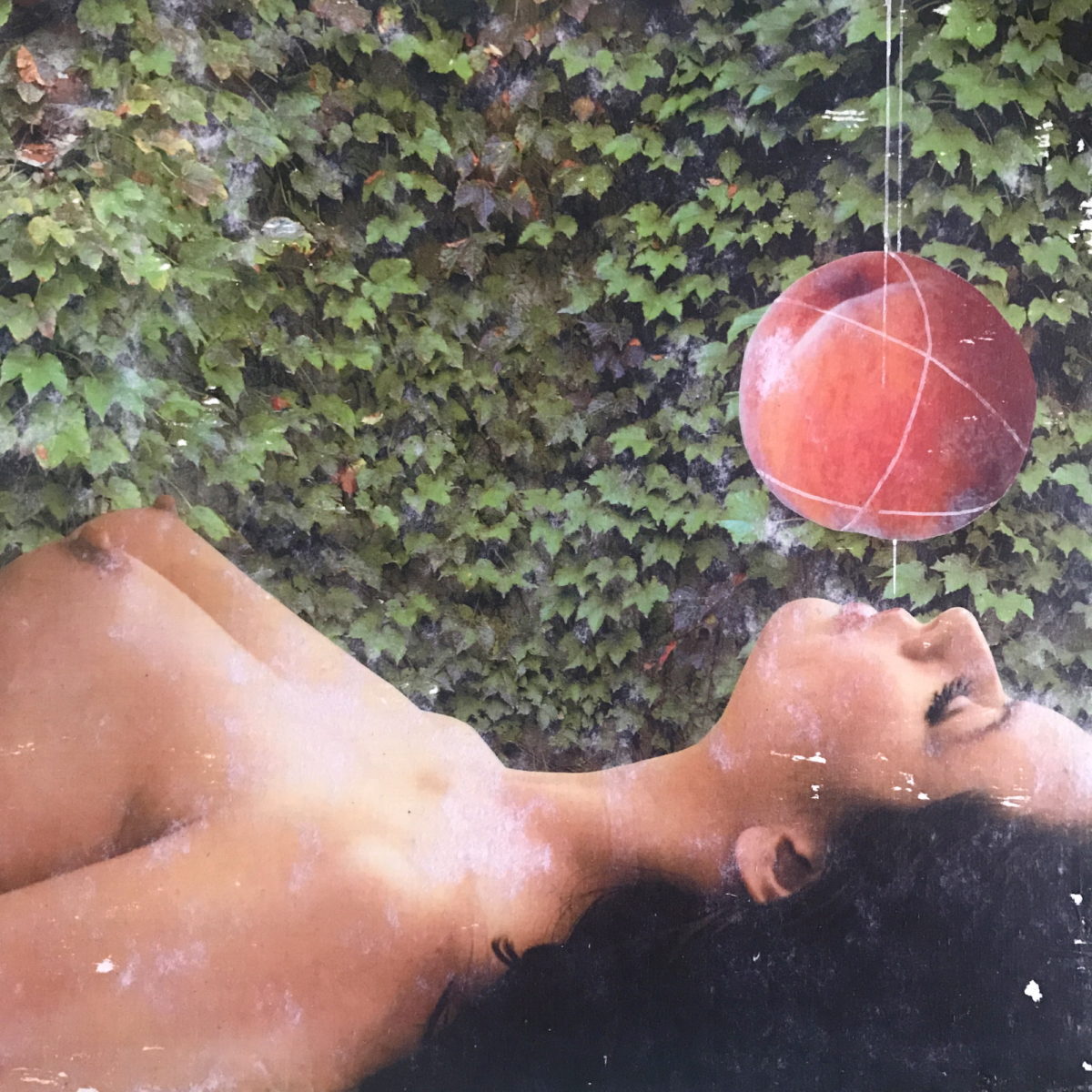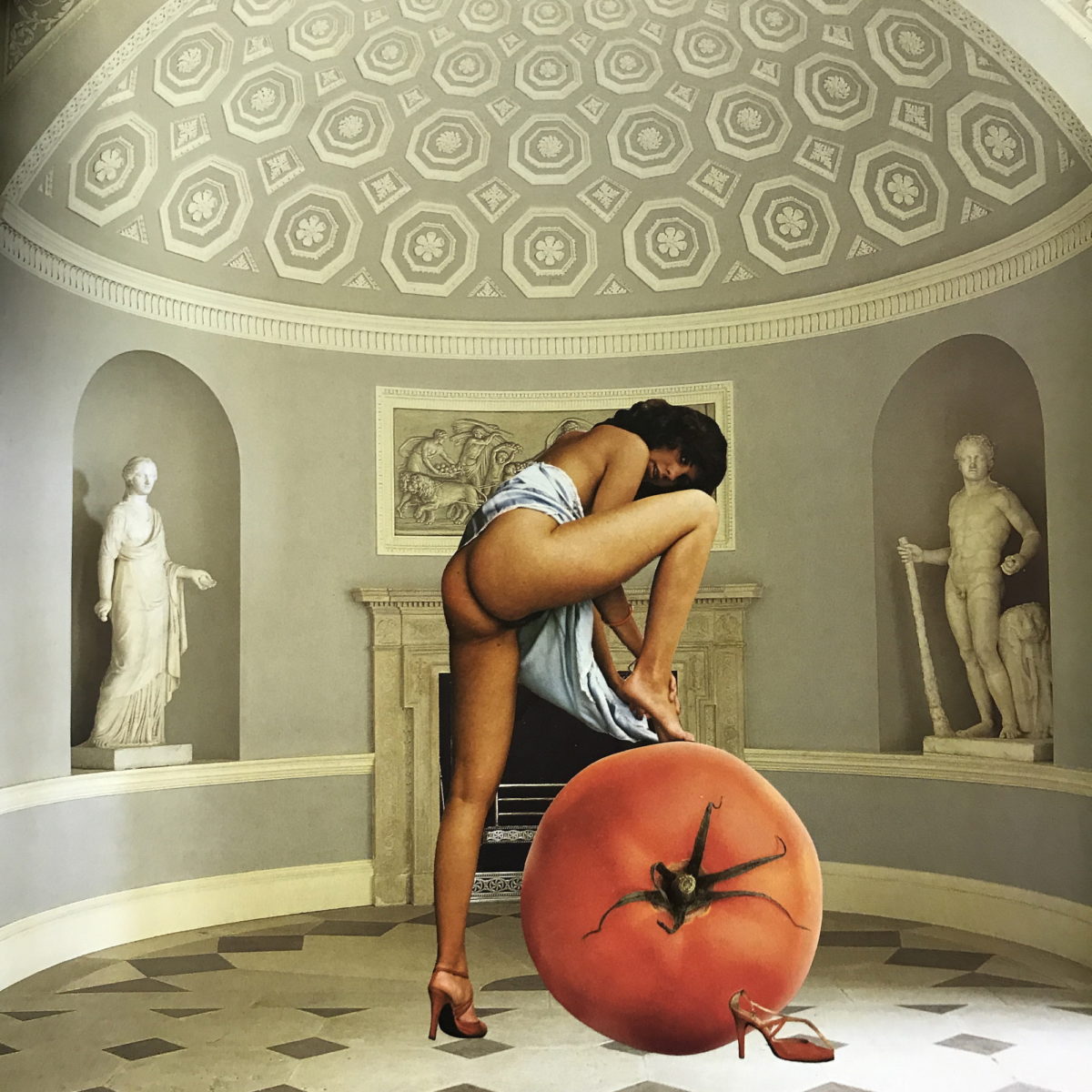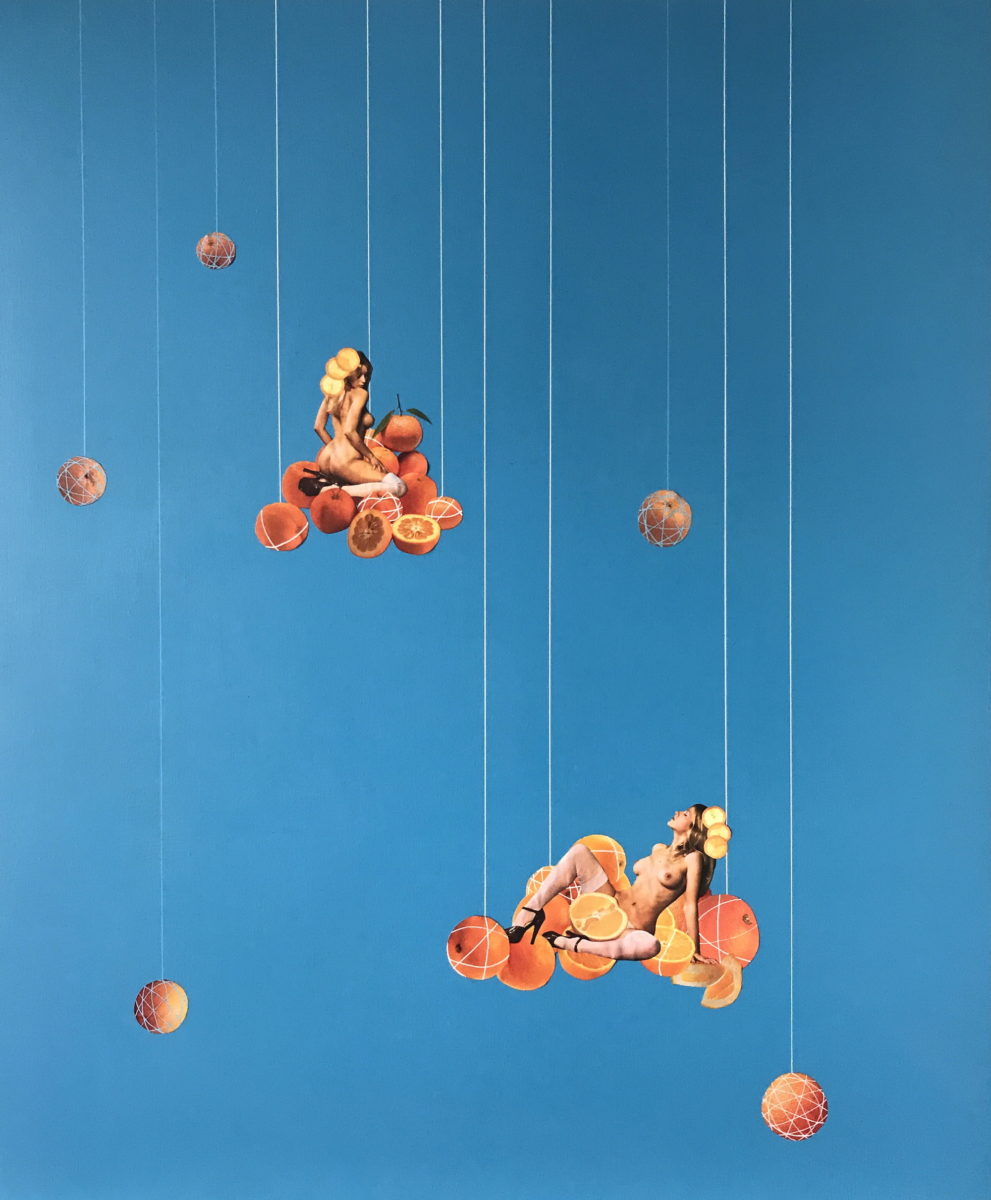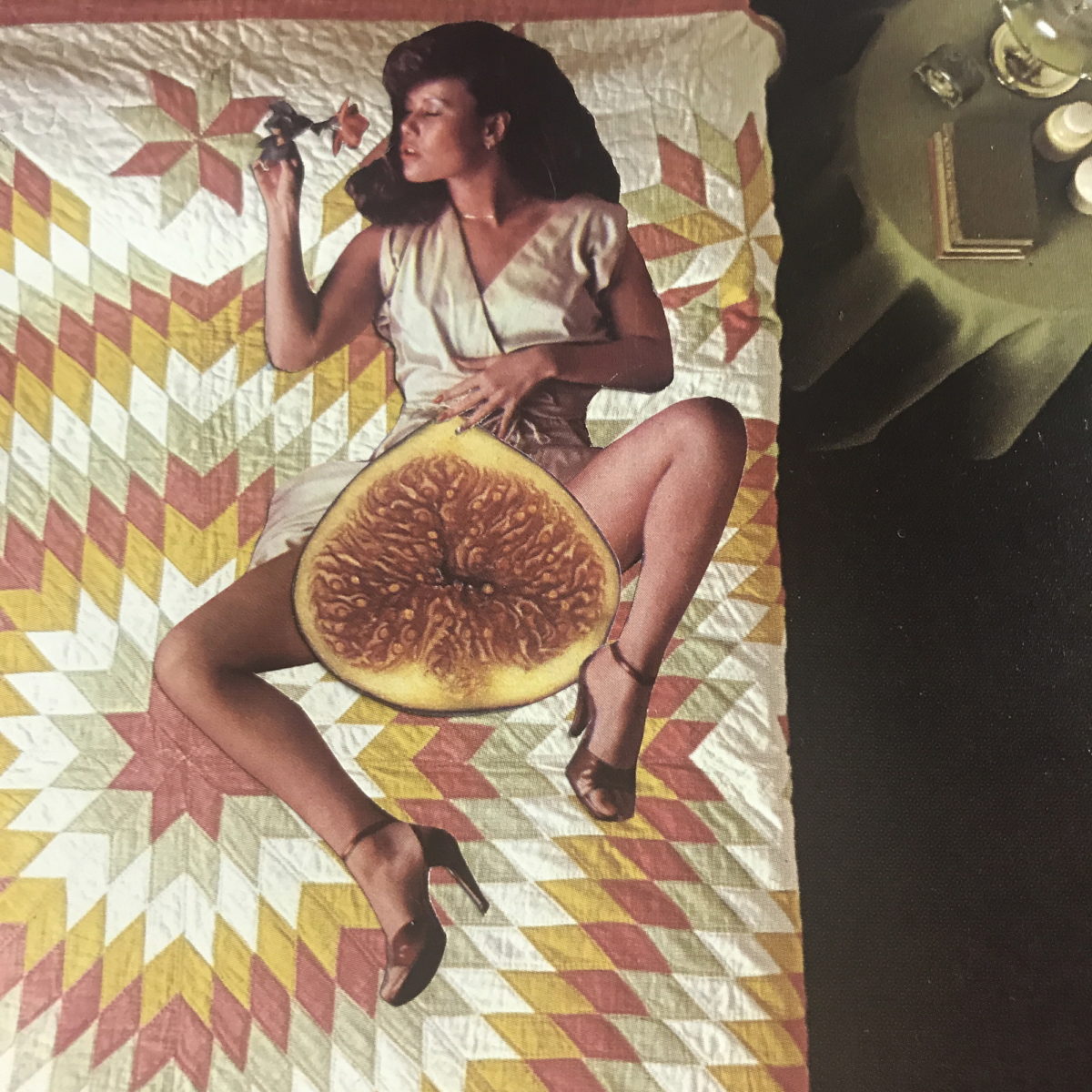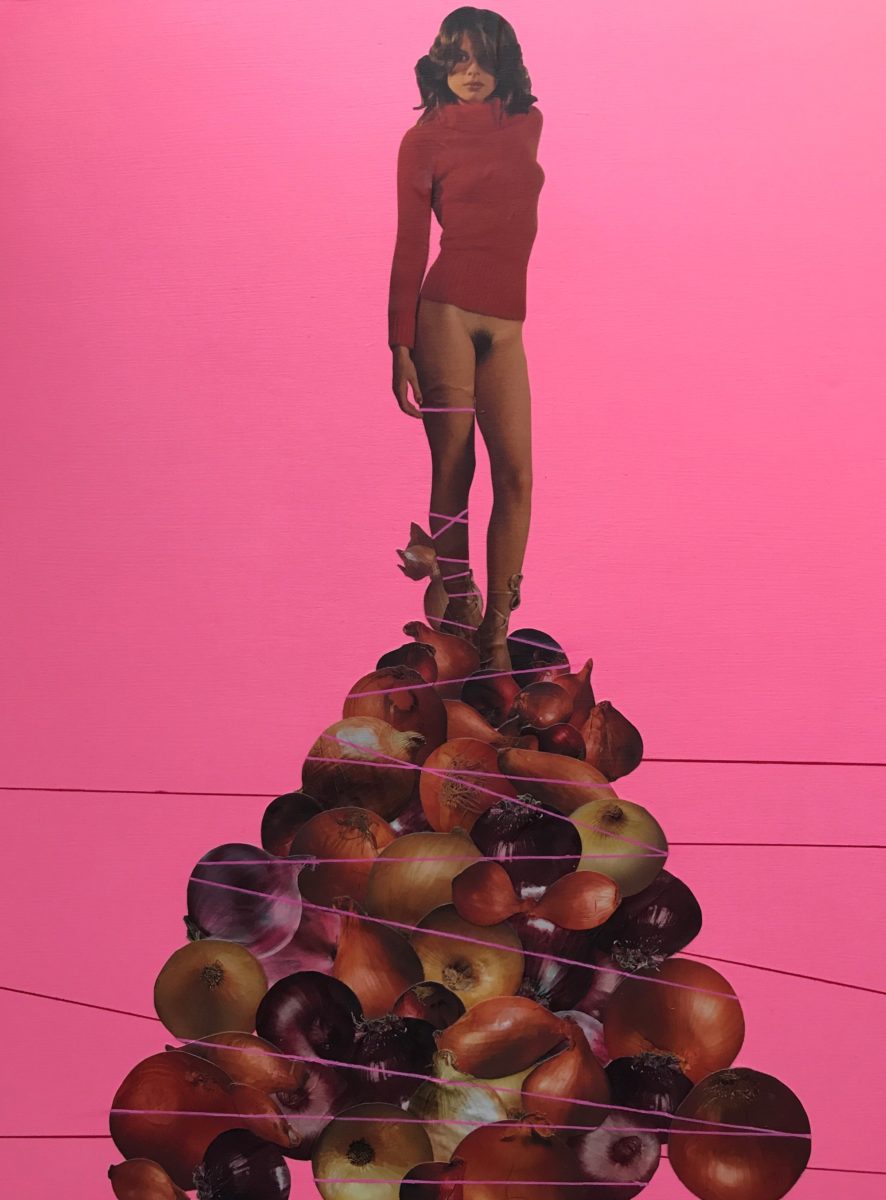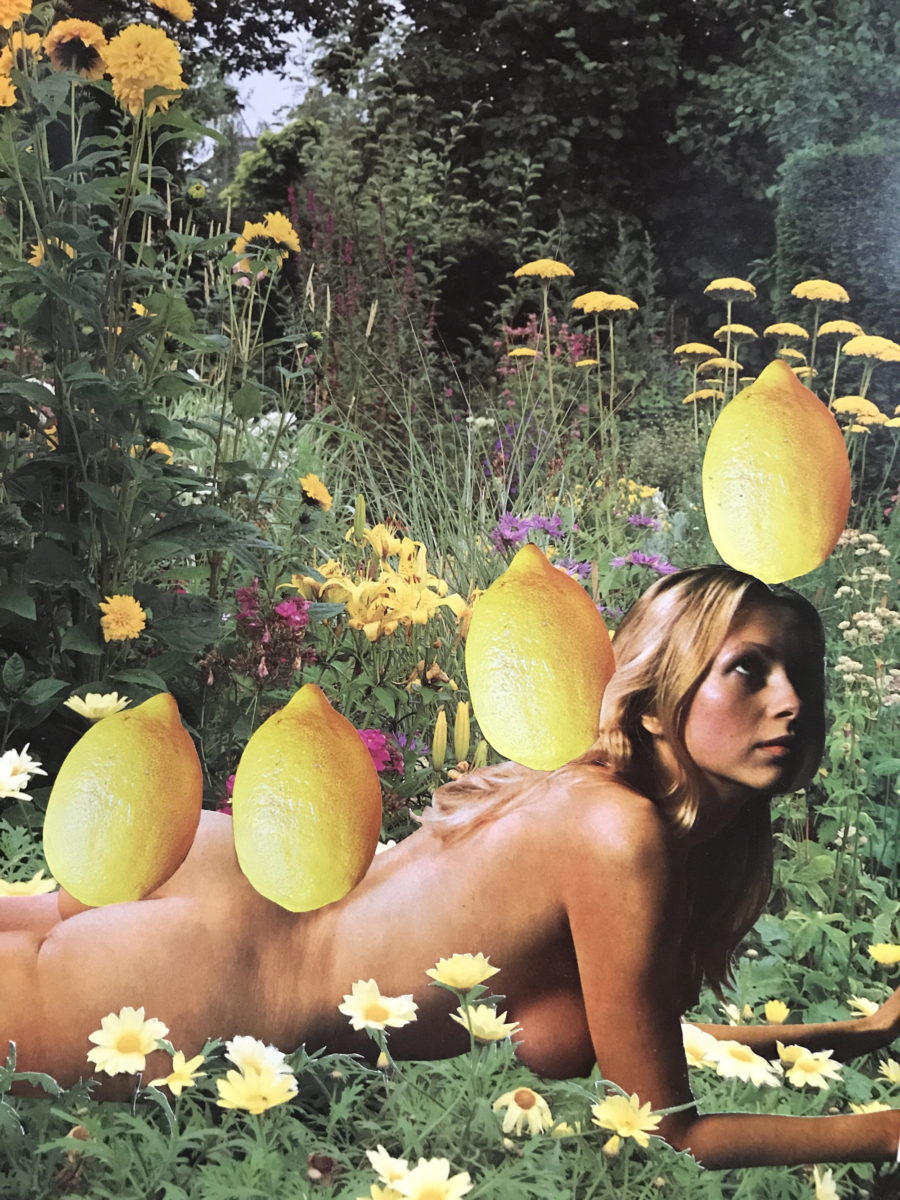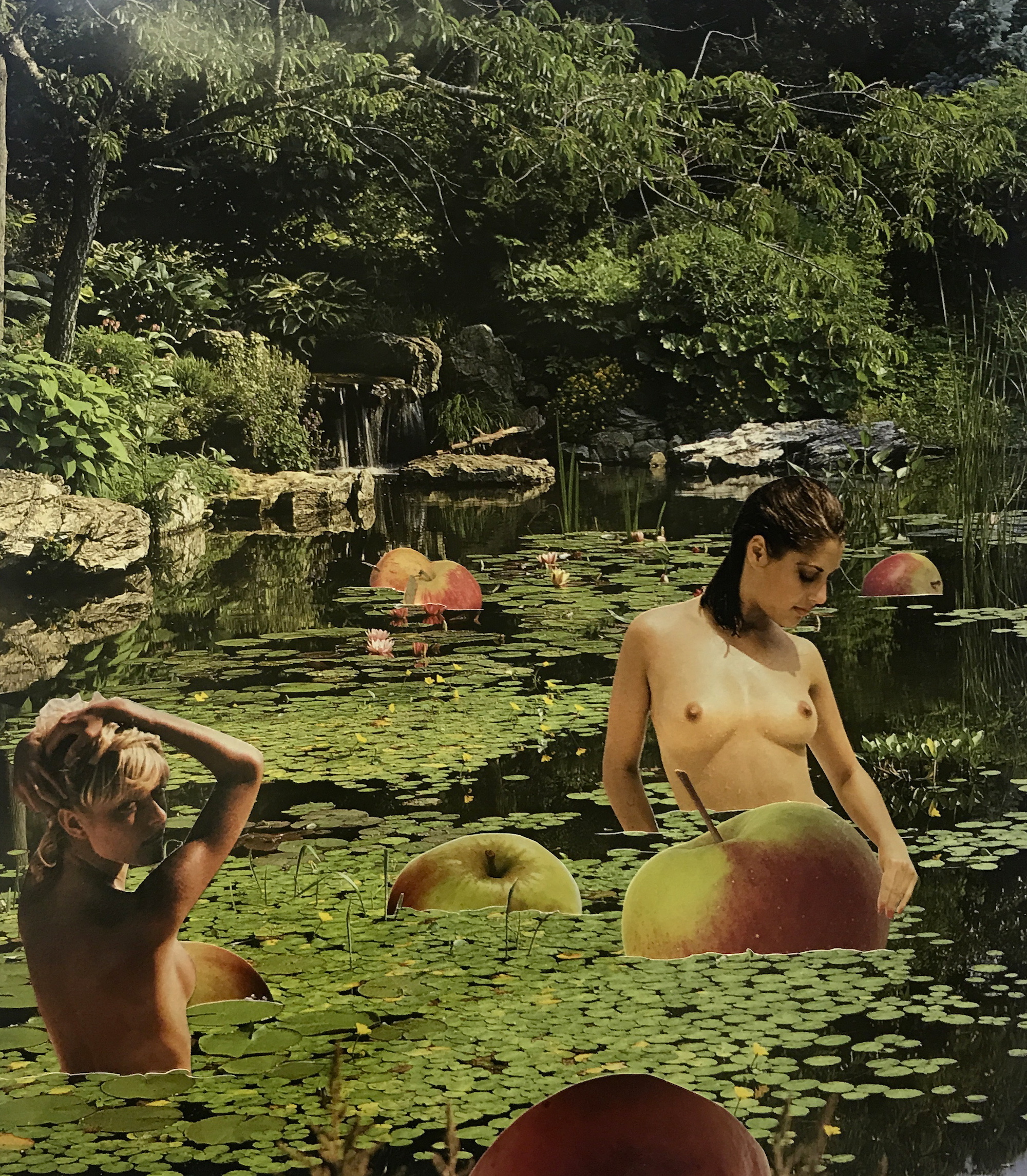
Bobbing For Apples, 2019
The temptation of Eve was over a single apple in the Garden of Eden, and so it follows that femininity and original sin remain bound up with forbidden fruit in our collective imagination. Olivia Brazier takes this forward in her playful collages that transpose cut-outs of women with fresh fruit and vegetables, from luscious figs to outsize watermelons.
Frequently placed in domestic settings, she asserts a surrealist take-down of the woman’s role in the home. With ever-absurdist combinations of fruit and flesh, the landscape is so distorted as to force us to look at it afresh. Scale is used to shrink and grow Brazier’s female subjects amidst their surroundings; a tomato swells to giant proportions in one image, while in another a woman stands triumphant atop a mountain of onions.
“Femininity and original sin remain bound up with forbidden fruit in our collective imagination”
The women in Brazier’s collages are taken from vintage pornographic magazines; often undressed, they are look seductively over their shoulder or pout defiantly at the camera. Removed from their original context, their gaze takes on new significance, fixed instead on a particularly ripe peach or apricot. Like punk icon and artist Linder before her, she takes scissors to these fantasies of femininity, refiguring them instead as products to be consumed—and, presumably, with a shelf-life to match.
Brazier raises challenging questions about the value and standing of women in society today, pointedly drawing a line of comparison between the hazy so-called sexual revolution of the 1970s and today. Just how liberated are these women, and what is their worth beyond their desirability? Like the temptation of Eve, even the ripest, most delectable of fruit is shown to be little more than a delusion.
